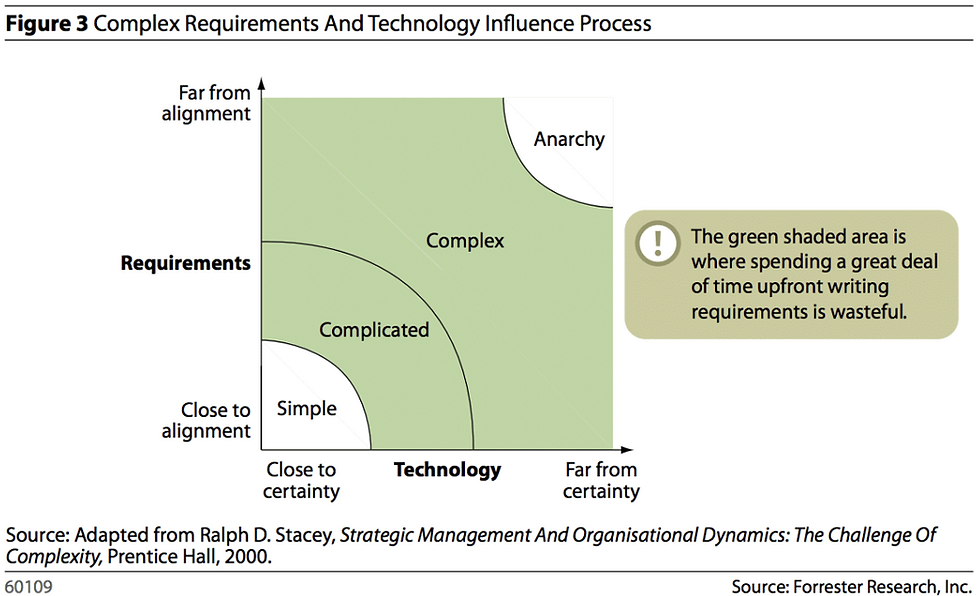The Burden of Project Management: Why AI Beats Checklists
- Violet Swierkot
- Apr 16, 2025
- 3 min read

When I work with clients on building a structured project management framework, I never take a one-size-fits-all approach. I always look outside the box—at how your existing systems can integrate with new tools, how your processes can be streamlined, and how we can shape project delivery around your resources, IT infrastructure, and success criteria.
Project management should drive outcomes—not bury your team in admin.
My current client asked me to explore new technologies to optimise staff delivery—and that challenge led directly to this article. Because modern project delivery isn’t about doing more of the same. It’s about working smarter, not harder.
Are you my next client? If so, read on to see how I can help you rethink delivery, streamline your systems, and build a digital IT strategy that turns your business vision into reality.
Checklists: A Double-Edged Sword
Checklists give us comfort. They bring order to chaos. But when we rely on them too much, they start to oversimplify complex problems or worse—become yet another thing to maintain.
The pitfalls?
They don’t adapt as the project evolves.
They require constant manual input.
They often result in duplication of work across tools.
They shift focus from outcomes to task completion.
We’ve all seen it: a beautiful checklist, all boxes ticked—yet the project still failed to deliver what mattered.
Admin Overload Is Real
Project managers today are spending more time tracking work than doing it.
Between chasing status updates, filling out forms, updating Gantt charts, and emailing meeting minutes, the admin can easily overtake the actual value-driving tasks like stakeholder alignment, creative problem-solving, or critical decision-making.
Process is supposed to support delivery—not smother it.
Why AI Changes the Game
AI doesn’t just speed up the process—it transforms how we think about project management.
Where checklists are reactive and rigid, AI is adaptive and predictive. It helps identify what’s likely to go wrong before it does. It connects dots that would take a human days to analyse. And it handles repetitive tasks silently in the background—freeing up space for strategic thinking.
Here’s what AI can do differently:
Surface priorities automatically based on context, urgency, and team bandwidth.
Detect early warning signs of risk from subtle patterns in communication, delays, or dependencies.
Generate meaningful summaries of progress or roadblocks without you writing a word.
Adapt to change in real-time, rather than needing a complete replan every time something shifts.
And most importantly—it doesn’t forget. AI remembers everything you feed it and keeps things consistent, even when your team is stretched.
Make It Simpler, Not Shallow
Adopting AI doesn’t mean dumbing things down—it means building a smarter, leaner layer on top of your current systems. Instead of using ten disconnected tools and hoping for clarity, you get one adaptive, learning system that evolves with your project.
It’s about shifting the mindset:
From input-driven to outcome-driven.
From manual monitoring to intelligent feedback loops.
From burdened by process to enabled by insight.
The Future of PM: Light, Smart, Strategic
As we rethink the role of project management in the AI era, we’re not throwing away discipline—we’re removing friction.
The best project managers of tomorrow will not be those who master every form and checklist. They’ll be the ones who know how to orchestrate work, understand the insights behind the data, and lead with clarity while letting AI handle the grunt work.
Checklists are tools. AI is a collaborator.
Let’s stop managing projects like it’s 2005. Let’s build better ways of working—where project management becomes an enabler, not a burden.
#ProjectManagement #DigitalStrategy #AIInProjectManagement #BusinessConsultant #ThinkAndGrowTech #WorkSmarter #NextLevelDelivery #InnovationInAction #TechTransformation #SmartSolutions #PMO #LeadershipInTech #BusinessImprovement #ProjectExcellence #EfficiencyMatters #ITConsulting #StrategicDelivery #DigitalInnovation #FutureOfWork #AgileDelivery



Comments